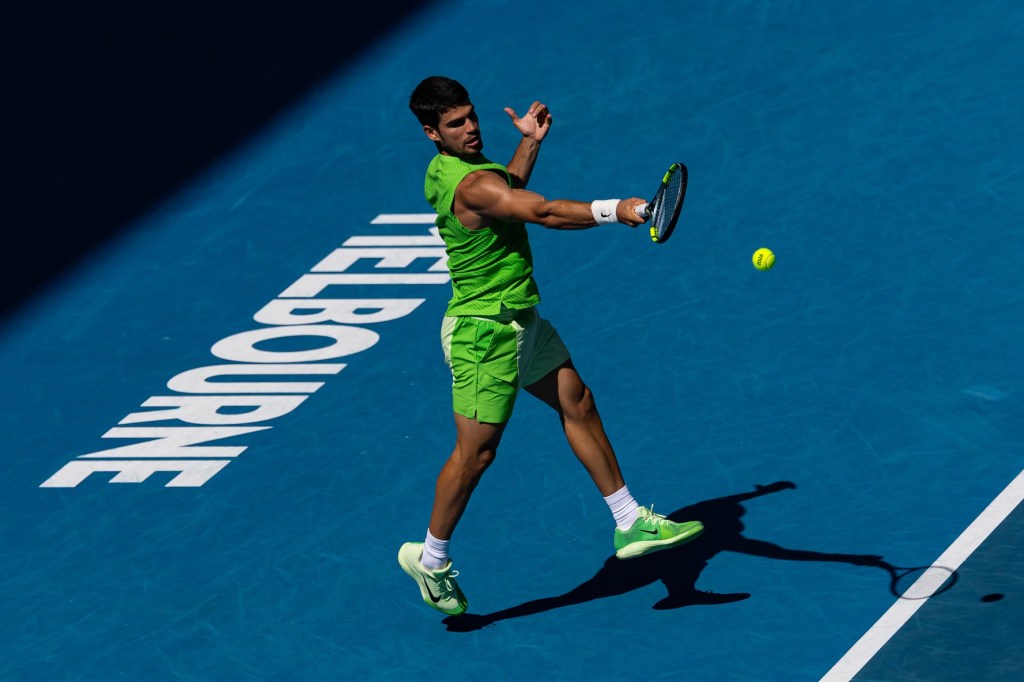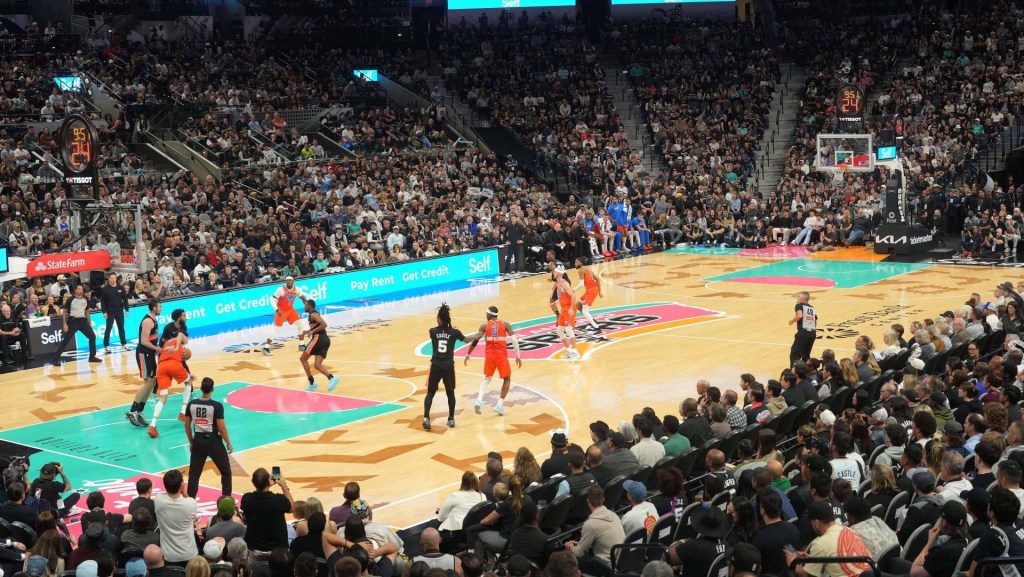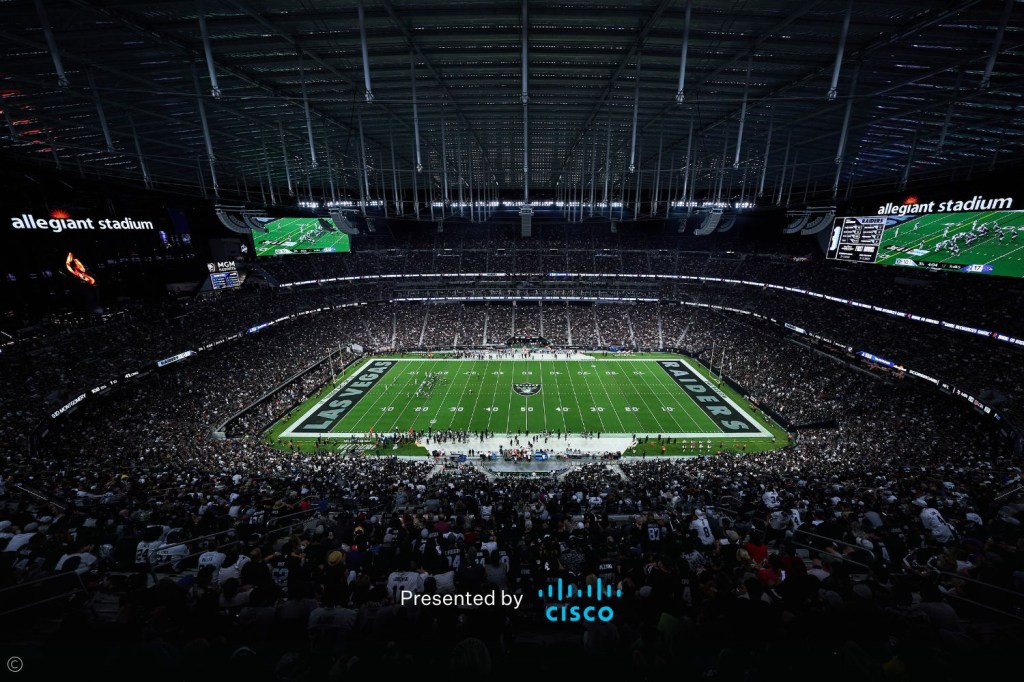In late July, play in a second-division soccer match in Norway was suspended as supporters threw hundreds of pastries onto the pitch. It was the latest in a series of disturbances at games in the country throughout the summer. The object of continued fans’ ire: the video assistant referee, known as VAR.
The history of soccer is littered with high-profile mistakes by referees. Argentina’s Diego Maradona is one of history’s finest, but he was vilified as a cheat in England after his deliberate handball that knocked England out of the 1986 World Cup—the so-called “hand of God” goal. In 2009, French striker Thierry Henry, got away with handling the ball twice while scoring the goal that denied Ireland qualification for the 2010 World Cup.
As incorrect calls stacked up—and soccer rose to become a multibillion-dollar product—a consensus emerged that it was unsatisfactory to have vital decisions rest solely with one skilled but fallible individual. VAR made its first appearance in a friendly match between PSV and FC Eindhoven in July 2016, and FIFA included it in the Laws of the Game for the 2018–2019 season.
Its intended purpose was clear: Ensure a fair game.
Yet VAR has not been the panacea soccer’s international governing body had hoped. As much as supporters hate their teams receiving bad calls from referees, they dislike the video assistant referee even more. And as European soccer opens its new seasons, VAR is in the crosshairs of many fans. In some cases, it may not survive the outrage.
In relying on technology to arbitrate major moments, soccer is no different than other sports, such as cricket, rugby, and tennis. Innovations such as Hawk-Eye and the Decision Review System have become widely accepted and, in many cases, are vital tools to ensure the accuracy of play.
What these have in common—and what has subsequently made them effective—are their clear usage and narrow scope. For example, most decisions are simple and objective (say, whether a ball lands in or out in tennis, or if a ball touches a bat in cricket); the number of times they are called upon are limited; decisions are reached quickly; and the process is public.
Soccer’s VAR is far more opaque, and it’s used in such a wide variety of situations that achieving consistent results is nearly impossible. The idea is that the video assistant referee watches the game in parallel with the on-field referee, and it can suggest a review if it believes a “clear and obvious” error has been made. This review can be conducted by the VAR, or it can recommend that the on-field referee reviews a replay on a pitchside screen. The list of potential decisions it can review is mind-bendingly long: everything from tackles, to the ball going out of play, to handballs and offsides. Players cannot request a VAR check. In fact, FIFA recommends that any player who gestures the “TV” signal for a review receive a yellow card.
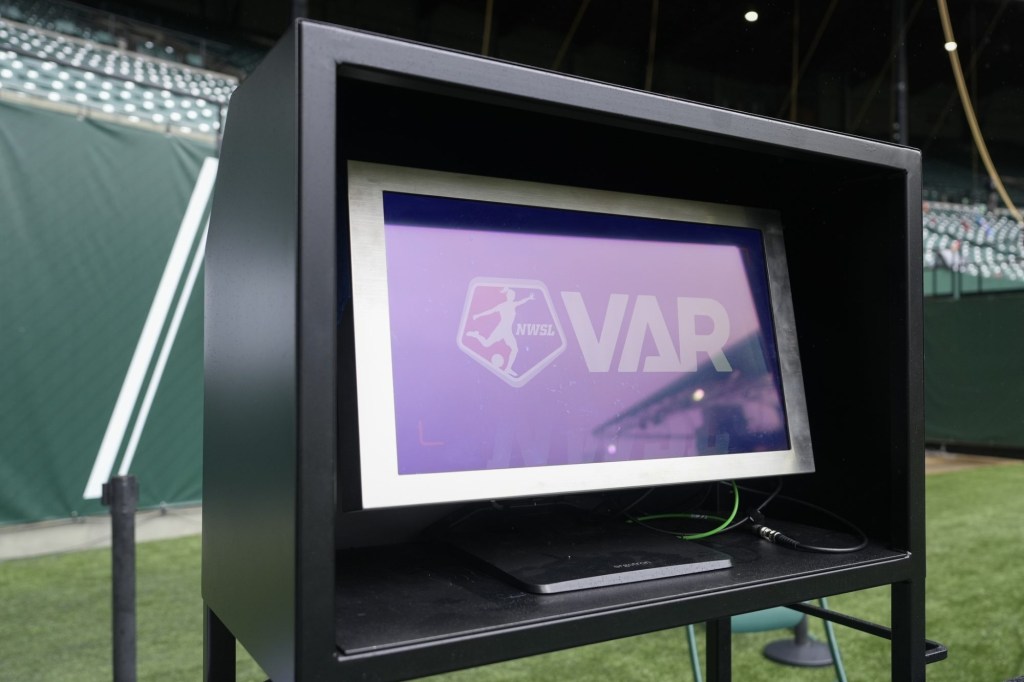
Delays are long—and getting longer. In March, a VAR call denied the English Premier League’s West Ham a late winning goal versus Aston Villa—a decision that paused the game more than five and a half-minutes. A report from the Premier League on the 2023–2024 season showed a 50% increase in VAR usage from the prior season, with the time to make a call ticking up to more than a minute—24 seconds longer than the prior season. Ruffled fans have made their opinions clear.
These interminable delays are particularly jarring in soccer, argues Tom Webb, associate professor at the Centre for Business and Society at Coventry University, U.K. “Football is different to other sports because there are not the same natural breaks in play that you have in rugby or tennis,” he says. “It is a fast game.”
Soccer’s use of VAR to assist in subjective situations also sets up the technology to fail. Webb has performed research showing elite referees’ footage of tackles in matches, with the results revealing that participants were equally split on whether the actions should be ruled as fouls. Adding VAR to the process does not provide a definitive answer—but it has enabled the technology to become a lightning rod for aggrieved supporters.
Members of Norway’s Eliteserien, the country’s top division, voted to introduce VAR for the 2023 season. However, Ole Kristian Sandvik of the Norsk Supporterallianse—a group focused on enhancing the fan experience at matches—tells Front Office Sports fans quickly realized it was a mistake. One match between Odds BK and Vålerenga was halted for more than 10 minutes for a VAR check. “VAR kills the joy of a goal,” says Sandvik. “Before VAR, we could look at the referee and know if it is a goal or not. Now, we can’t celebrate without reservation.”
Soccer’s authorities have also yet to settle on a way to broadcast the VAR process to fans in the stadium. Sandvik is particularly vexed that supporters at Eliteserien matches are given no context for what is happening while the check is ongoing. It’s actually more informative to watch games at home on television, as broadcasters can pull up replays of the incident to inform viewers.
Vålerenga, the Norwegian club whose fans threw the pastries, released a statement last year in which they argued “VAR ruins the match experience for all the loyal fans in the stands who support their clubs through thick and thin.” The club became the first in the country to announce it was campaigning to remove VAR from Norwegian football.
There is only one major European league that has opted against introducing VAR: Sweden’s Allsvenskan. Svante Samuelsson of Svensk Elitfotboll, the competition’s administrative body, cites similar logic for opposing VAR. Soccer fans “don’t want to wait for a VAR decision to know if they can cheer or not.” However, Samuelsson also suggests a more philosophical reason: “The VAR issue has also become a symbolic thing: Who are the clubs for? For whom do they exist?”
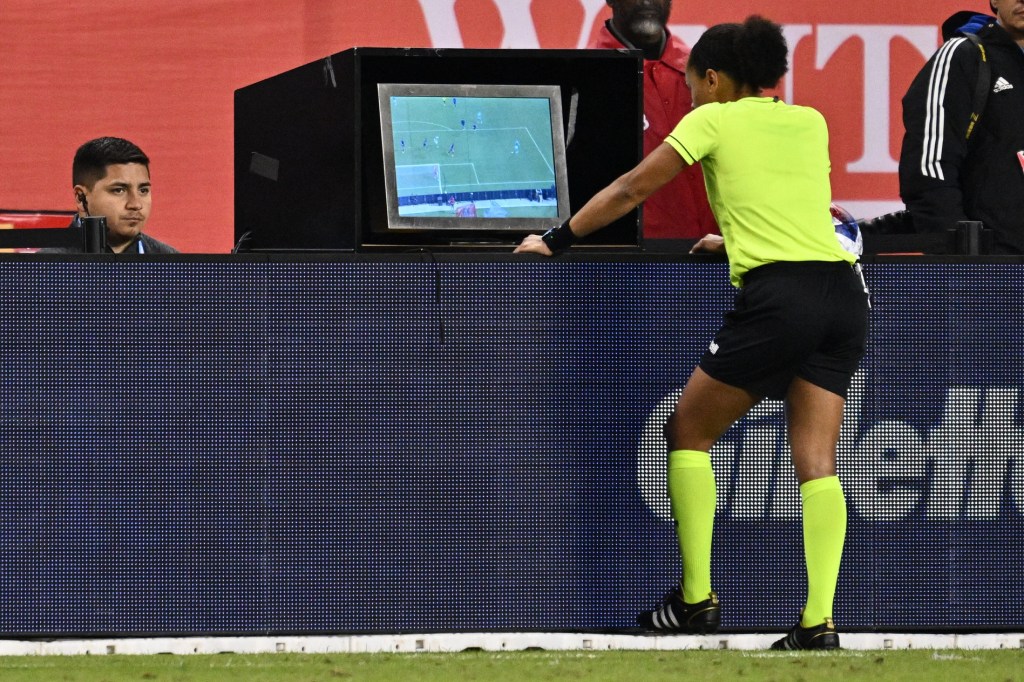
Although Scandinavian soccer clubs are miniscule in the European soccer landscape, their backlash may actually have teeth. Fans in both Norway and Sweden are more powerful than supporters in soccer’s financial powerhouses, such as England, Spain, and Italy. Swedish clubs are majority-owned by their members: fans who pay a small annual fee. This gives them voting rights over the composition of club boards and a say on important issues at member meetings, such as the adoption of VAR.
Match-attending fans are also more integral to the financial performance of clubs in Scandinavia, as opposed to broadcasting revenue, in which top European clubs make most of their money. Clubs in the Allsvenskan derived an average of 17% of their revenue from tickets and refreshments in 2023, but broadcasting revenue amounted to just 11% of Swedish clubs’ income. For Manchester City, the reigning Premier League champions, only 10% of earnings came from attendance, whereas broadcasting represented 42% of the club’s income. For Swedish club owners, there are financial incentives to listen to their members, while European giants are more invested in providing the best media experience.
In England, even with widespread supporter distaste and pushback from the Football Supporters’ Association in England, VAR is here to stay. In the EPL, Wolverhampton Wanderers pulled a Vålerenga-like move when it proposed scrapping VAR at the end-of-season meeting of the league’s 20 clubs in June. In a subsequent vote, it was defeated 19–1.
Instead, the Premier League and its clubs are attempting to improve VAR. It will introduce semi-automated offside technology later this year, thanks to a partnership with London-based technology firm Genius Sports. This system uses more than two dozen cameras to build a digital twin of the action on the pitch that the firm says will reduce some VAR checks from minutes to seconds.
As the richest soccer league in the world, the Premier League has the resources to install a system that Tony Scholes, the Premier League chief football officer, describes as “newest and most accurate technology available” in all 20 of its grounds.
But for leagues with limited cash flow, VAR’s efficacy remains middling—and its problems enormous. Sandvik highlights that among the limitations of the Norwegian system is that its clubs use only 5–12 cameras (the Premier League used 20 in the 2023–2024 season), which can deprive the VAR of the angles needed to make accurate decisions. And issues such as how to keep fans in the stadium informed and simplify the operational procedure of VAR checks remain unresolved.
The next test in the war against VAR will come at the Norges Fotballforbund annual football parliament in March 2025, after which its clubs will vote on removing the system. For the Norsk Supporterallianse, VAR has become a matter of principle. “Norwegian football will never compete with the best leagues on the pitch,” argues Sandvik. “But we can beat the same leagues on the values of the game.”
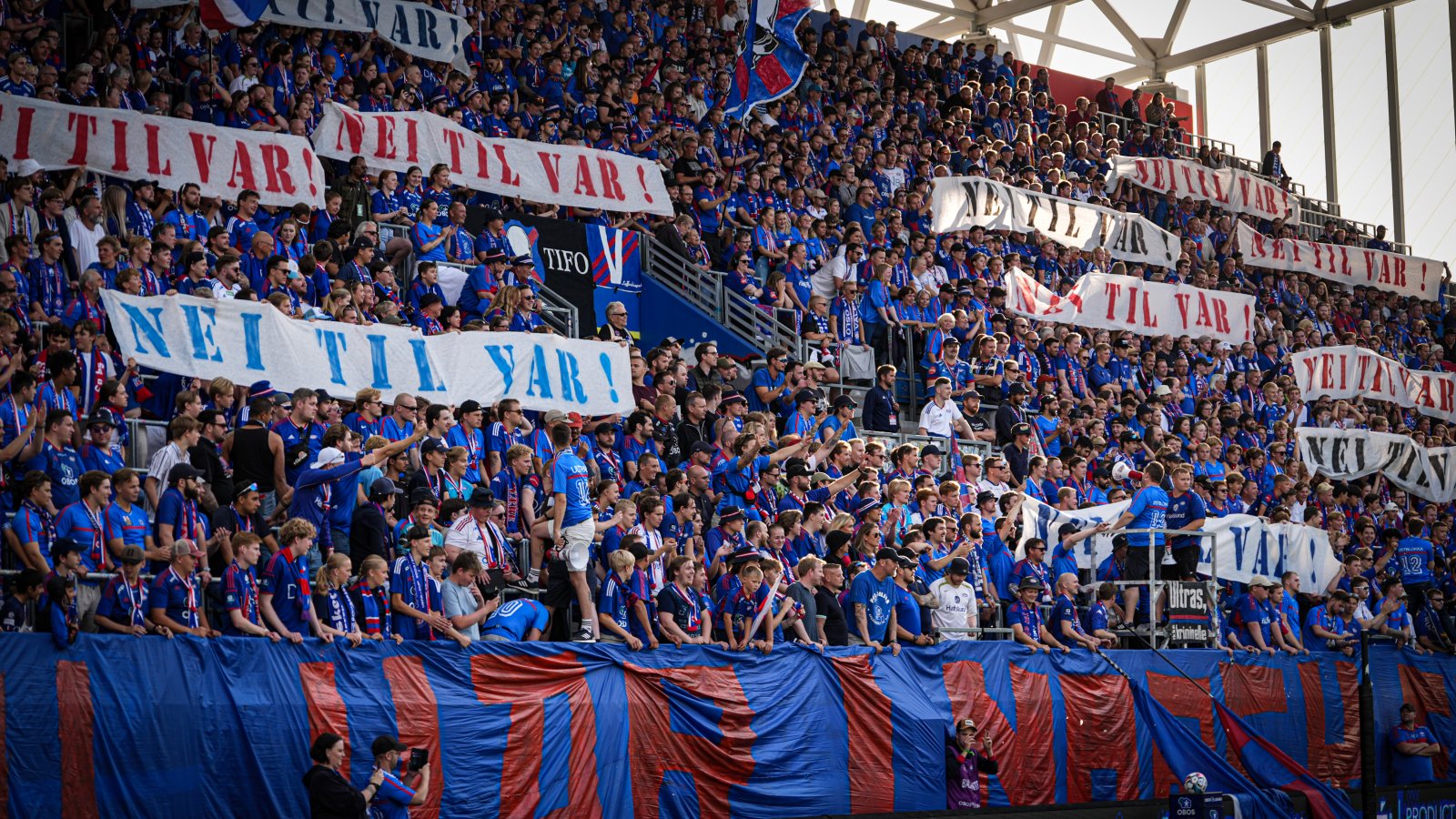





![[Subscription Customers Only] Jun 15, 2025; Seattle, Washington, USA; Botafogo owner John Textor inside the stadium before the match during a group stage match of the 2025 FIFA Club World Cup at Lumen Field.](https://frontofficesports.com/wp-content/uploads/2026/02/USATSI_26465842_168416386_lowres-scaled.jpg?quality=100&w=1024)
![[Subscription Customers Only] Jul 13, 2025; East Rutherford, New Jersey, USA; Chelsea FC midfielder Cole Palmer (10) celebrates winning the final of the 2025 FIFA Club World Cup at MetLife Stadium](https://frontofficesports.com/wp-content/uploads/2026/02/USATSI_26636703-scaled-e1770932227605.jpg?quality=100&w=1024)



